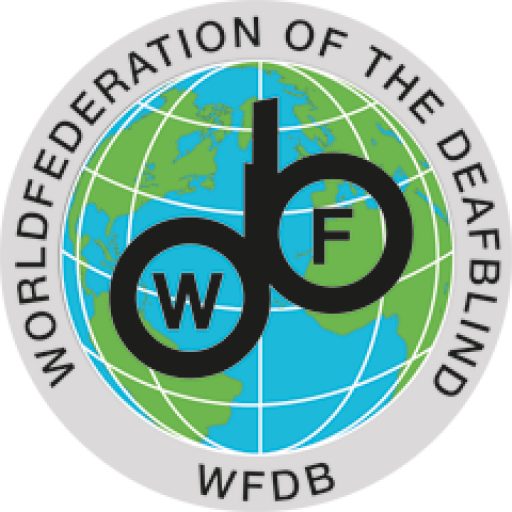
On Monday, 16 June 2025, the United Nations General Assembly adopted without a vote a resolution titled “International Day of Deafblindness” A/79/L.92, officially proclaiming 27 June as the International Day of Deafblindness. The Assembly invited all Member States and UN agencies to promote the empowerment and inclusion of deafblind individuals in all aspects of society.
The resolution was introduced by Mr. Hrvoje Ćurić Hrvatinić, Deputy Permanent Representative and Chargé d’Affaires a.i. of the of Croatia to the UN, who emphasized that persons with deafblindness represent “the world’s largest minority group — a diverse community spanning all ages, religions, continents, and backgrounds.” He stated, “This resolution is not merely symbolic — it is a call to action to ensure persons with deafblindness are no longer left behind.” This historic resolution affirms deafblindness as a unique and distinct disability, recognizing the specific challenges, barriers, and support needs faced by persons who are deafblind in achieving full inclusion in society.
A Global Movement with Powerful Momentum
This historic achievement was made possible through the leadership of the Permanent Mission of the Republic of Croatia to the United Nations, in close collaboration with the World Federation of the Deafblind (WFDB), under the direction of Dr. Sanja Tarczay, a Croatian woman with deafblindness and a longtime global advocate for disability rights. Other core group countries included Antigua and Barbuda, Djibouti, Jordan and the United Republic of Tanzania.
“A powerful example of the speed and effectiveness of organized civil society.”
— Dr. Sanja Tarczay, President, The World Federation of the Deafblind and Vice President of the International Disability Alliance
This milestone is the result of a unified global effort: an extraordinary 99 countries co-sponsored the resolution, signaling widespread international support and a unified global voice for deafblind inclusion.
Why June 27th?
The date of 27 of June has been chosen to commemorate the birth of Helen Keller in 1880, a renowned figure in the deafblind community. The deafblind community already commemorates this day using it to remind the world that the deafblind community exists and must be visible. The last week of June is also recognized as Deafblind International Awareness Week. The importance and contributions of the deafblind community globally are highlighted through various events, manifestations, conferences and exhibitions.
Key Provisions of the Resolution
- Official Proclamation: June 27 will be observed annually as the International Day of Deafblindness starting in 2025.
- Recognition of Deafblindness as a Distinct Disability: The resolution urges governments to recognize deafblindness separately in laws, policies, and programs.
- Awareness and Inclusion: Calls on all UN Member States, organizations, and civil society to raise awareness and promote the inclusion of deafblind persons.
- Importance of Interpreter Services: Highlights the critical role of professional deafblind interpreters and interpreter-guides in enabling access to communication, information, and community participation.
- Symbolic Recognition: Acknowledges the red and white striped cane as an important tool for mobility and identification within the deafblind community.
Paving the Way for Real Change
This recognition lays the foundation for concrete action: inclusive legislation and policy, equitable access to services and technologies, and a more informed and inclusive public. The resolution invites all Member States and UN entities to raise awareness, promote the rights of deafblind persons, and ensure their full participation in every aspect of society — in line with the pledge to “leave no one behind.”
Catalyzing Support: CoSP18 Side Event as a Key Milestone
In the lead-up to the resolution, a pivotal side event was held during the 18th Conference of States Parties to the Convention on the Rights of Persons with Disabilities (CoSP18). On Thursday, 12 June 2025, from 1:15 to 2:30 pm EST, the Permanent Mission of Croatia, together with WFDB and the International Disability Alliance (IDA), hosted this event in Conference Room 4 at the United Nations Headquarters in New York. The event was co-sponsored by Tanzania and Jordan.
This gathering served as a vital platform to build momentum and push for the adoption of the resolution, bringing together key stakeholders, advocates, and allies from around the world.
We extend our heartfelt thanks to everyone who contributed to this remarkable milestone.
With Gratitude to Our Global Partners
We deeply thank the following partners and organizations for their unwavering commitment and collaboration, especially in the dissemination of advocacy letters and their support of our activities:
- WFDB Board and national members, including the Croatian Association of Deafblind Persons (DODIR)
- The International Disability Alliance (IDA)
- Deafblind International and its members, including Perkins International
- Sense International and its country teams
- The World Federation of the Deaf
- The World Blind Union
- Lions Club International
- ICEVI
- Women Enabled International
- UN agencies, including UN DESA, UN Women (special thanks to Dr. Monjurul Kabir), and OHCHR (with gratitude to Ms. Heba Hagrass, Special Rapporteur on the rights of persons with disabilities)
Join the Movement: Celebrate and Share
We encourage governments, civil society, organizations, and communities around the world to commemorate International Day of Deafblindness and throughout Helen Keller Week. Organize events, share stories, create campaigns — and most importantly, celebrate the voices, resilience, and contributions of persons who are deafblind.
“Alone we can do so little; together we can do so much.”
— Helen Keller
Resources
- Cosponsors list
- Access the resolution
- Download the full transcript of the session
- Watch the official UN session (Relevant minutes: 02:47:00 – 02:58:00)
- Read about the CoSP18 Side Event (12 June 2025)
